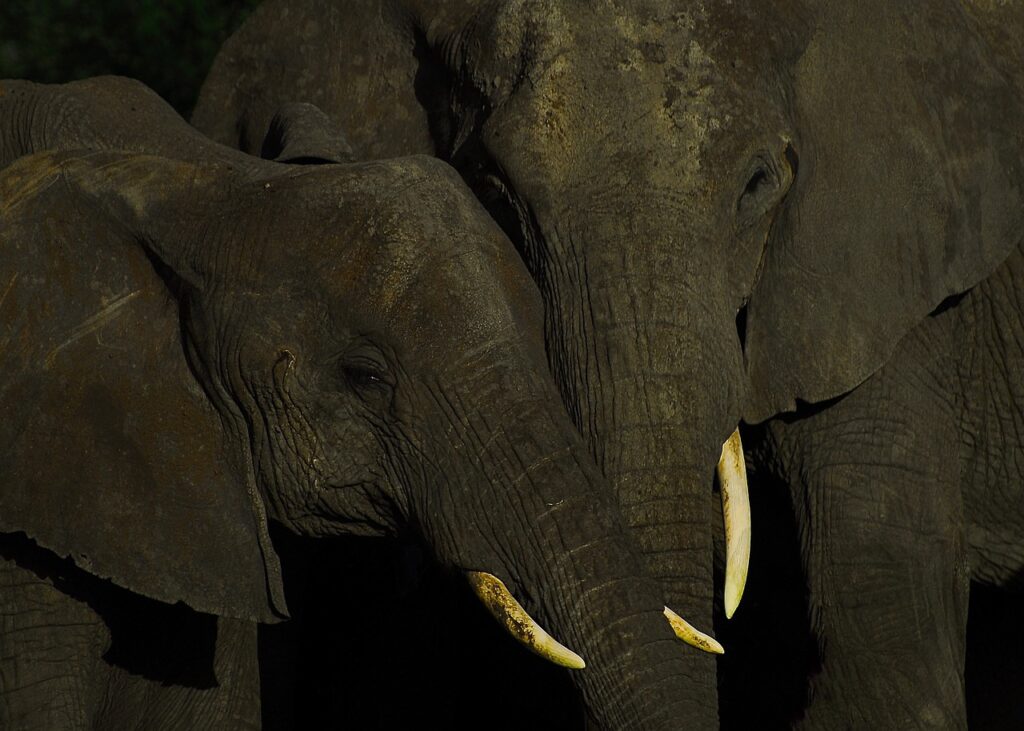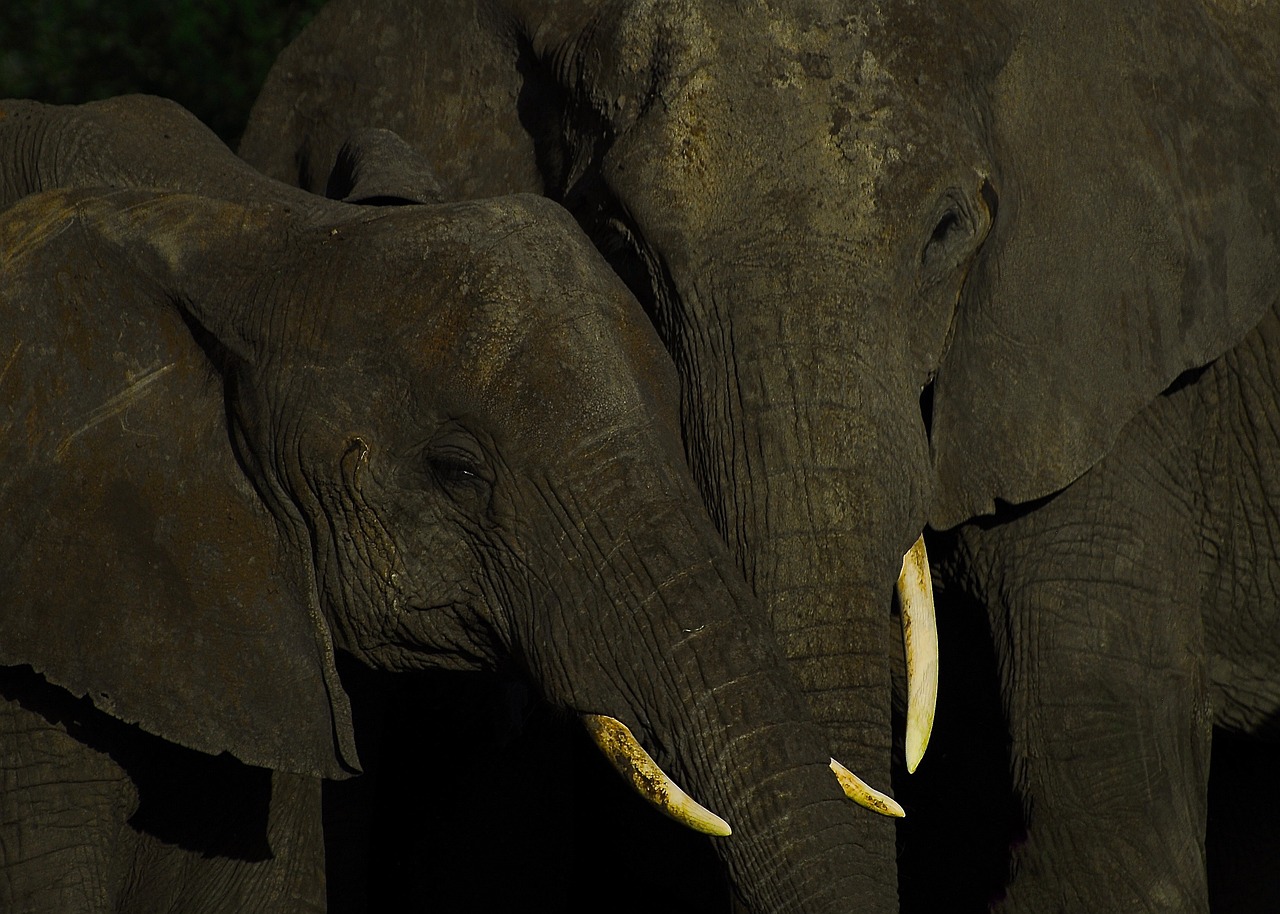Ladies and gentlemen, we cannot stress enough the significance of conserving biodiversity. The intricate web of life that exists on our planet is a marvel, one that provides us with an array of crucial benefits. From ensuring the availability of essential resources to protecting human health and fostering economic growth, the preservation of biodiversity holds immeasurable advantages for both present and future generations. Join us as we explore the numerous benefits that stem from conserving the varied and precious life forms that inhabit our world.

Ecological Stability
Maintaining Ecosystem Balance
Conserving biodiversity is crucial for maintaining ecological stability in our natural systems. Biodiversity refers to the variety of living organisms, including plants, animals, and microorganisms, as well as the complex interactions between them and their environment. This diversity creates a delicate balance within ecosystems, ensuring that all components are interconnected and able to thrive. By preserving this balance, we can safeguard the health and resilience of our ecosystems, allowing them to continue providing vital services to both nature and society.
Regulating Climate
Biodiversity plays a significant role in regulating our climate. Forests, for example, act as carbon sinks, absorbing and storing large amounts of carbon dioxide from the atmosphere. By doing so, they help mitigate the effects of climate change by reducing greenhouse gas emissions. Additionally, the intricate web of relationships between different species, such as predatory-prey interactions and symbiotic relationships, contributes to the overall stability of ecosystems. This stability, in turn, helps to regulate weather patterns and prevent the occurrence of extreme climate events, such as floods and droughts.
Pollination and Seed Dispersal
A diverse range of plant and animal species is essential for supporting pollination and seed dispersal processes. Pollinators, including bees, butterflies, bats, and birds, ensure the reproduction and survival of many plant species by transferring pollen from one flower to another. This process leads to the production of fruits, seeds, and nuts that form the basis of our food supply. Similarly, various animals, such as birds and mammals, aid in seed dispersal by consuming fruits and spreading the seeds as they move through different habitats. Preserving biodiversity helps to maintain these crucial ecological processes, ensuring the continued availability of food and habitat for countless species, including our own.
Economic Benefits
Provision of Goods and Services
Conserving biodiversity directly contributes to the provision of goods and services that are essential for human well-being and economic development. Ecosystems provide us with vital resources such as fresh water, timber, and food. Wetlands, for example, act as natural filters, purifying water and providing us with clean drinking water. Forests not only supply timber but also serve as sources of medicinal plants and other natural ingredients used in various industries. Protecting biodiversity ensures a sustainable supply of these resources, enabling economic sectors to thrive while minimizing negative impacts on the environment.
Tourism and Recreation
Biodiversity-rich areas often attract tourists from all over the world, providing economic benefits to local communities. Natural landscapes, national parks, and wildlife reserves offer unique opportunities for recreation, adventure, and eco-tourism. People are drawn to the beauty and diversity of these areas, seeking immersive experiences that connect them with nature. By conserving biodiversity, we not only preserve natural treasures but also support the growth of tourism industries, generating revenue and employment opportunities for local communities.
Pharmaceuticals and Biotechnology
Our natural world is an invaluable source of inspiration for the development of medical treatments and advancements in biotechnology. Many plant and animal species contain compounds with therapeutic properties, serving as the basis for medicines that save lives and alleviate human suffering. By conserving biodiversity, we ensure that these potential pharmaceutical resources remain available for future research and development. Furthermore, the genetic diversity found within different species provides a vast pool of genetic resources for biotechnology, opening doors to innovations in agriculture, industrial processes, and sustainable technologies.
Food Security
Crop Diversity and Resilience
Maintaining biodiversity is crucial to preserving crop diversity and enhancing the resilience of our agricultural systems. A diverse range of crops ensures food security by reducing the vulnerability of our food production to pests, diseases, and changing environmental conditions. Different crop varieties possess unique traits that make them better adapted to specific climates, soils, and pests. Preserving biodiversity in agricultural landscapes allows farmers to have access to a wide range of crop options, enabling them to adapt to changing environmental conditions and ensure a stable and nutritious food supply for communities.
Livestock and Fisheries
Biodiversity conservation also extends to our livestock and fisheries sectors. Healthy ecosystems provide diverse habitats for livestock and fish populations, contributing to their overall health and productivity. Maintaining the diversity of forage plants, including grasses and legumes, in grazing areas ensures a balanced and nutritious diet for livestock. Similarly, preserving marine and freshwater ecosystems allows fish populations to thrive, ensuring sustainable fisheries and a source of livelihood for millions of people worldwide. By protecting biodiversity, we safeguard the foundation of our agricultural systems and the sustainability of our food production.
Enhancement of Resilience
Adaptation to Environmental Changes
In an era of rapidly changing environmental conditions, conserving biodiversity is essential for enhancing the resilience of both natural and human systems. Biodiversity provides the building blocks for adaptation, allowing ecosystems and species to withstand and recover from disturbances such as climatic shifts, habitat degradation, and pollution. A higher level of biodiversity within ecosystems provides a wider array of ecological responses, increasing their ability to adapt to new challenges and pressures. This adaptability ensures the long-term survival of species, including our own, and the maintenance of ecosystem services that are vital for our well-being.
Natural Disaster Mitigation
Conserving biodiversity plays a crucial role in mitigating the impacts of natural disasters. Healthy ecosystems act as natural buffers, helping to regulate water flow and prevent flooding. Wetlands and forests, for instance, absorb excess rainfall and store water, reducing the risk of destructive floods downstream. Similarly, coastal vegetation and coral reefs provide natural barriers against storm surges and protect coastal communities from the devastating impacts of hurricanes and tsunamis. By protecting and restoring natural habitats, we not only enhance our resilience to natural disasters but also save lives and reduce the economic costs associated with their aftermath.
Preserving Cultural Heritage
Traditional Knowledge and Practices
Biodiversity conservation is closely linked to the preservation of cultural heritage. Indigenous peoples and local communities have long relied on their traditional knowledge and practices in managing ecosystems and living in harmony with nature. Their deep understanding of the relationships between different species and the resources provided by ecosystems is invaluable for sustainable resource management. Conserving biodiversity helps to protect these traditional knowledge systems, ensuring the transmission of cultural heritage from generation to generation and fostering diversity, resilience, and innovation in our societies.
Spiritual and Aesthetic Values
The beauty and diversity of the natural world have long inspired awe and wonder in humanity. Biodiversity-rich areas hold deep spiritual and aesthetic values that transcend their practical benefits. Forests, mountains, rivers, and other natural landscapes have played significant roles in shaping cultural beliefs, artistic expressions, and religious practices. Preserving biodiversity allows us to maintain these unique places as sources of inspiration, solace, and cultural identity. The existence of diverse and thriving ecosystems enriches our lives, connecting us to the larger web of life and reminding us of our place in the intricate tapestry of the natural world.
Species Evolution and Genetic Diversity
Evolutionary Potential
Conserving biodiversity is essential for ensuring the evolutionary potential of species. The process of evolution relies on genetic diversity, allowing populations to adapt and evolve in response to changing environments and selective pressures. Genetic diversity serves as a source of resilience against diseases and other threats, increasing the likelihood of survival and success for species. By protecting habitats and fostering connectivity between different ecosystems, we enable the free movement of species, promoting genetic exchange and the diversification of populations. This process ensures the long-term survival of species and allows for continued evolutionary innovation.
Medicinal and Agricultural Advancements
The preservation of biodiversity has profound implications for medical and agricultural advancements. Many life-saving drugs and breakthroughs in medicine have originated from natural sources, with various plant and animal species providing valuable compounds with therapeutic properties. By conserving biodiversity, we safeguard potential resources for future pharmaceutical discoveries, ensuring that nature continues to inspire and provide solutions to human health challenges. Additionally, the genetic diversity found in wild relatives of domesticated crops is crucial for breeding programs, allowing scientists to develop improved crop varieties with enhanced resistance to diseases, pests, and environmental stressors.
Water and Air Quality
Purification and Filtration
Biodiversity plays a vital role in maintaining the quality and availability of our water resources. Wetlands, for example, act as natural filters, removing pollutants and sediment from water bodies and improving water quality. Forests also contribute to water purification by reducing erosion and preventing the runoff of harmful substances into rivers and streams. By conserving and restoring these ecosystems, we ensure the provision of clean and safe water for human consumption, agriculture, and industry. Furthermore, healthy aquatic ecosystems support diverse fish populations, playing a crucial role in maintaining the balance of freshwater ecosystems and the complex web of life they sustain.
Carbon Sequestration
The preservation of biodiversity in forests, grasslands, and other ecosystems supports carbon sequestration, mitigating the impacts of climate change. Plants, through the process of photosynthesis, absorb carbon dioxide from the atmosphere and store it as organic matter. Forests, in particular, act as significant carbon sinks, helping to regulate atmospheric carbon levels and reduce the greenhouse effect. By protecting and restoring natural habitats, we ensure their continued capacity to sequester carbon and contribute to global climate stability. Conserving biodiversity is therefore a critical component of climate change mitigation strategies and a pathway towards a more sustainable future.
Education and Research
Understanding Ecosystem Dynamics
Biodiversity serves as a rich source of knowledge and inspiration, offering valuable insights into the functioning of ecosystems and the interconnections between different species. By studying the relationships between organisms and their environment, we deepen our understanding of ecological processes and the intricate balance that sustains life on Earth. This knowledge is vital for developing effective conservation strategies and informing sustainable management practices. By conserving biodiversity, we ensure that future generations have access to this wealth of knowledge, allowing for continued learning and innovation in the field of ecology and environmental science.
Discovery of New Species and Processes
The exploration and conservation of biodiversity continue to reveal new species and processes that enrich our understanding of the natural world. Many undiscovered species, particularly in more remote and less explored areas, hold immense scientific and ecological value. Each newly discovered species provides an opportunity to deepen our knowledge, contributing to the broader understanding of evolutionary patterns, ecological interactions, and ecosystem dynamics. Furthermore, the study of biodiversity reveals intricate processes and mechanisms that can be replicated and applied in various fields, such as technology, medicine, and engineering. Conserving biodiversity ensures that these opportunities for discovery and advancement remain available for future generations.
Ethical Reasoning and Responsibility
Intrinsic Value of Nature
Conserving biodiversity is not only a practical necessity but also a matter of ethical reasoning. Nature has intrinsic value and deserves to be respected and preserved for its own sake, independent of its instrumental value to human beings. Every species, no matter how small or seemingly insignificant, has a unique role to play in the tapestry of life. Every ecosystem, no matter how remote or unknown, possesses its own inherent and irreplaceable value. By recognizing the intrinsic value of nature, we develop a sense of responsibility and stewardship towards the natural world, ensuring that future generations can experience the same awe, wonder, and interconnectedness that we do.
Moral Obligation to Future Generations
Conserving biodiversity is an ethical imperative that stems from our moral obligation to future generations. We have an inherent responsibility to leave a vibrant and sustainable planet for those who come after us. Biodiversity loss and ecosystem degradation threaten not only the well-being of current generations but also the ability of future generations to thrive. By conserving biodiversity today, we ensure that our children and grandchildren will inherit a world that is rich in nature’s wonders and capable of providing for their needs. It is our duty to be responsible stewards of the Earth, acting with foresight and compassion to protect the planet for generations to come.
Conservation of Ecosystem Services
Maintaining the Benefits Humans Derive from Nature
Ultimately, the conservation of biodiversity is essential for the continued provision of ecosystem services. Ecosystem services encompass the wide range of benefits that humans derive from nature, including clean air and water, fertile soil for agriculture, climate regulation, and cultural inspiration. These services underpin our daily lives, supporting human well-being, economic development, and the preservation of our cultural and natural heritage. By conserving biodiversity and preserving the intricate web of relationships within ecosystems, we ensure that these services persist, enabling us and future generations to thrive in harmony with nature.
In conclusion, the benefits of conserving biodiversity are vast and far-reaching. From ecological stability to economic prosperity, food security to resilience, and cultural heritage to the discovery of new knowledge, the conservation of biodiversity is essential for a healthy and sustainable future. By recognizing the value of nature and acting as responsible stewards of the Earth, we can preserve the incredible richness and beauty of our natural world for generations to come.




